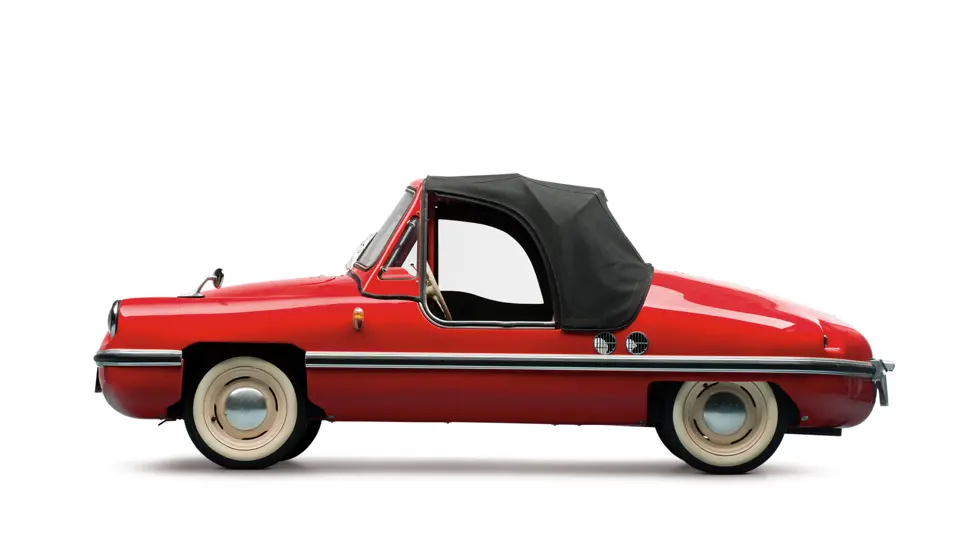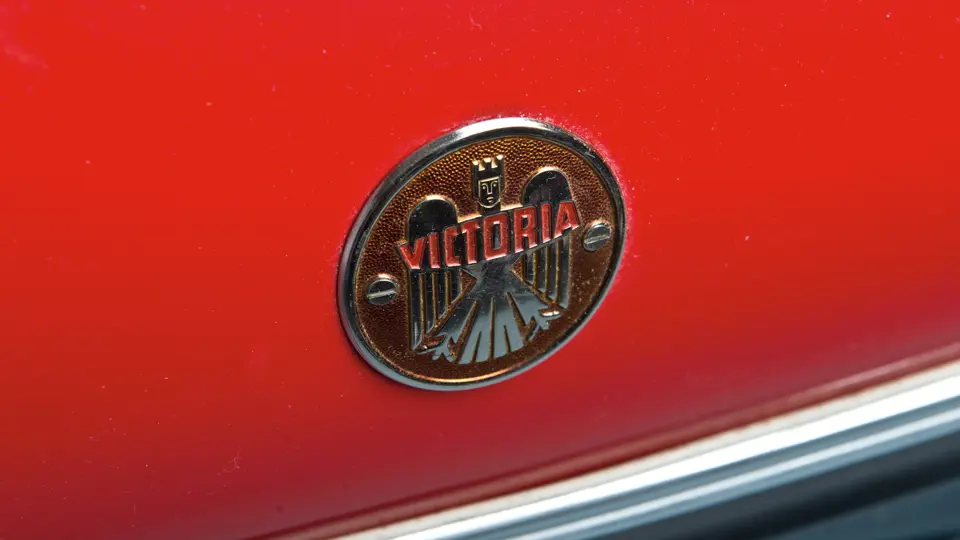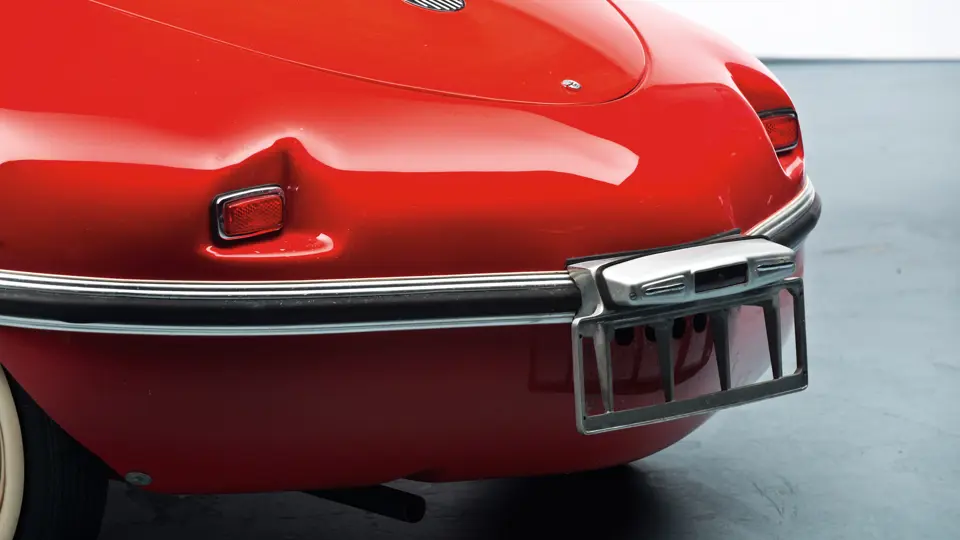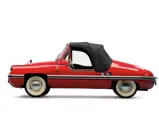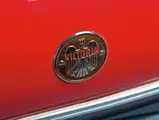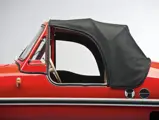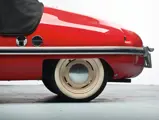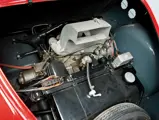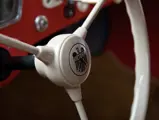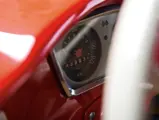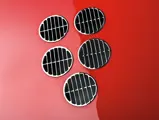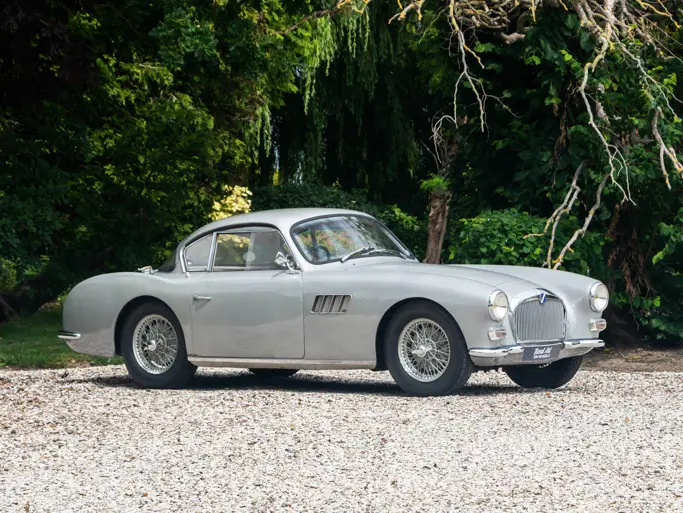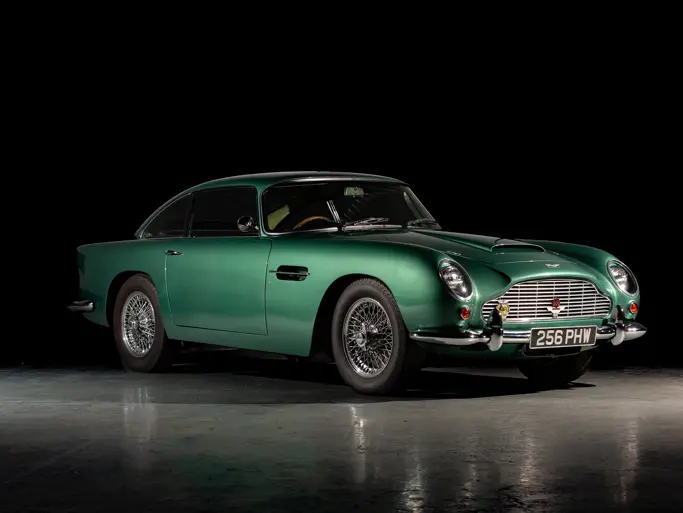The earliest known of its type.
SPECIFICATIONS
Manufacturer: Victoria-Werke AG
Origin: Nürnberg, Germany
Production: 729
Motor: Victoria 1-cyl, 2-stroke
Displacement: 248 cc
Power: 14 hp
Length: 11 ft.
Identification No. 1004
Harald Friedrich had transformed the Brutsch 200 Spatz from an egg-shaped, flimsily-built, unsalable three-wheeler to a strong, elegant, mid-engined four-wheeler with an excellent frame and modern car suspension and brakes. But a black eye from a magazine road test engine fire, and ongoing legal action with Brütsch, gave Friedrich headaches, and he gave notice to his partners at Victoria, indicating that he wanted out.
At the International Automobile Show in Frankfurt in 1955, the press praised the Spatz for its low, sporting, elegant lines, but they were sceptical about the low power-to-weight ratio. This did not escape the notice of the new masters at Victoria, who set about overhauling the car’s specifications. They had already considerable experience in servicing and maintaining the cars through their dealerships, and they were intimately familiar with its shortcomings, particularly the motor and the absence of doors.
B.A.G. had shown a coupe in 1955 and an exciting gullwing-door version in 1956, of which only a few examples were sold. Victoria’s chief designer, Wendel, built some prototypes with hardtops and doors, but in every case, they weighed too much for the motor. So a roadster it would remain, but it would be powered by a new motor that was developed in-house by Richard Loukota just for the car. But the real trick would be the new electric pre-selector transmission. Five speeds were selected by three pushbuttons on the dash, for reverse, neutral, and first, with second, third, and fourth selected by a small lever on the dash in conjunction with the clutch. The new motor required new rear deck cooling grilles, a new dashboard, and a taller, heavy-framed windshield with vent windows. The changes made it virtually a new car, so it was renamed the Victoria 250.
The first examples were delivered in June 1957, to a cheering public and press, but at the Auto Show in September, there already was too much competition from other makers, thus initializing the writing on the wall for the small microcar manufacturing firms. Victoria decided to pack it in, and their last car was delivered in February 1958. This example is significant in that it is the earliest known car, being the fourth built. It was restored in Canada for the first Bruce Weiner Collection, where it was sold, and then it returned to the museum seven years later. It is correct in every respect, down to the rare cloisonné Victoria badge.




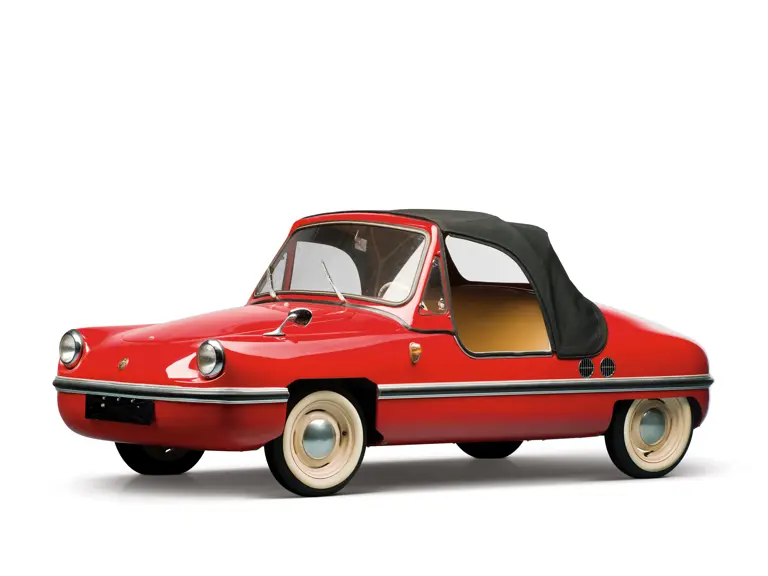
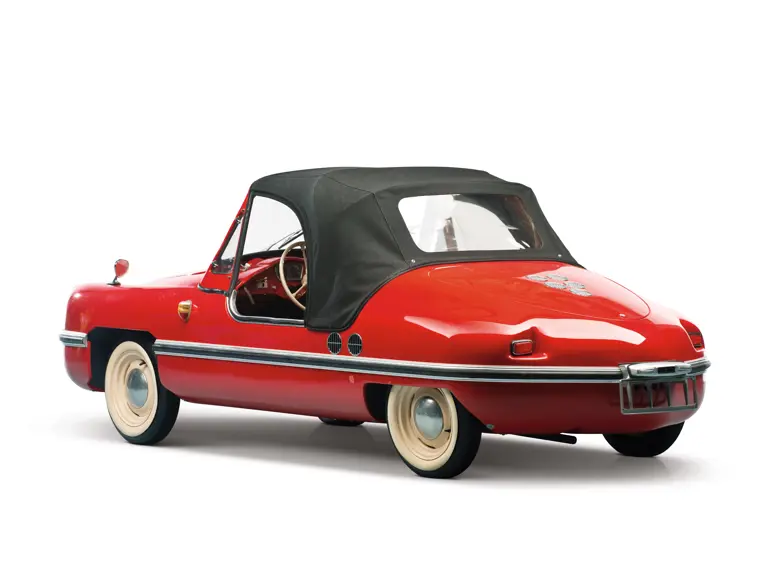
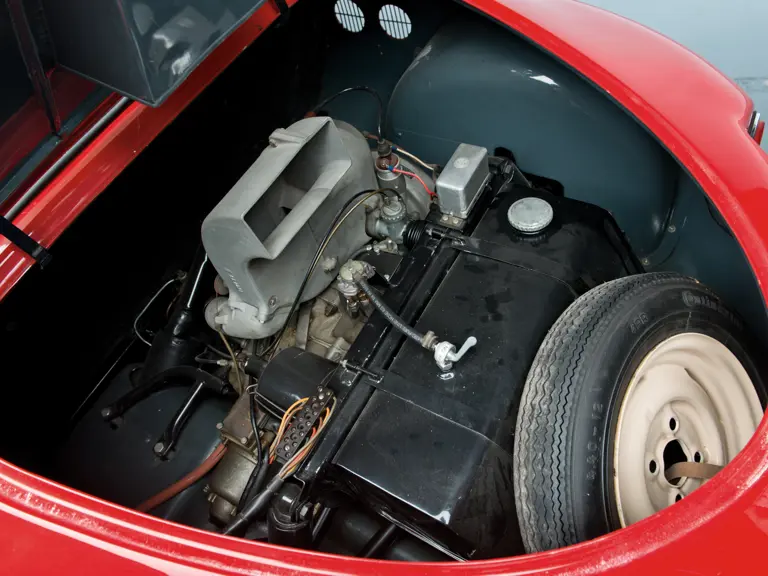
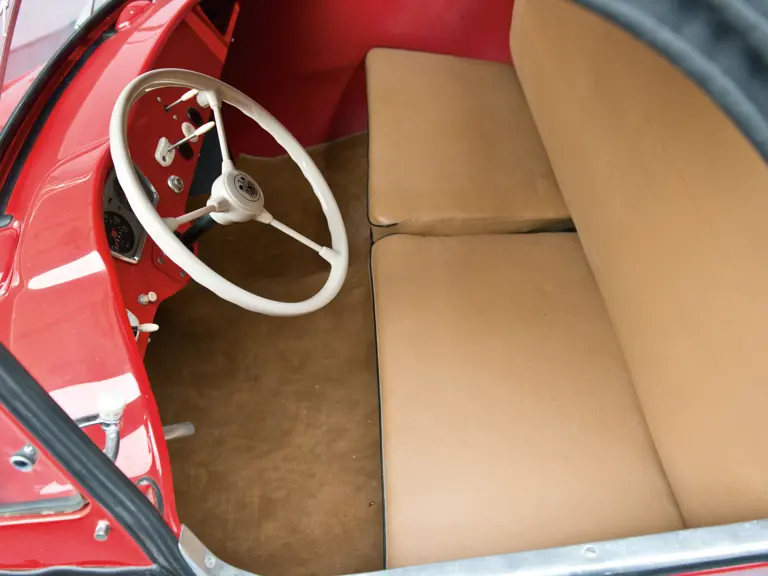
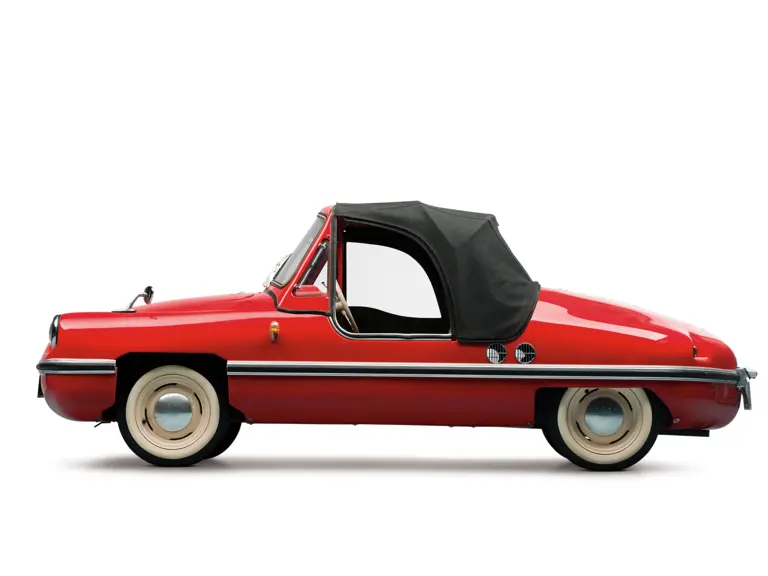
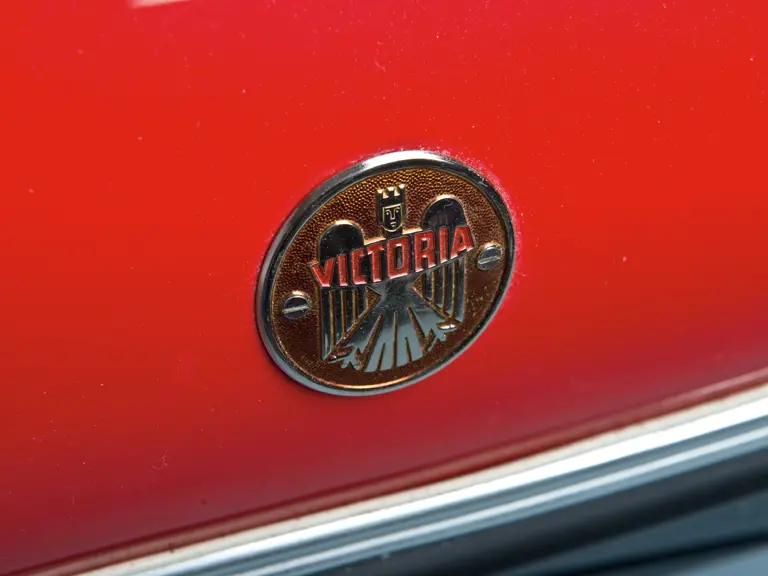
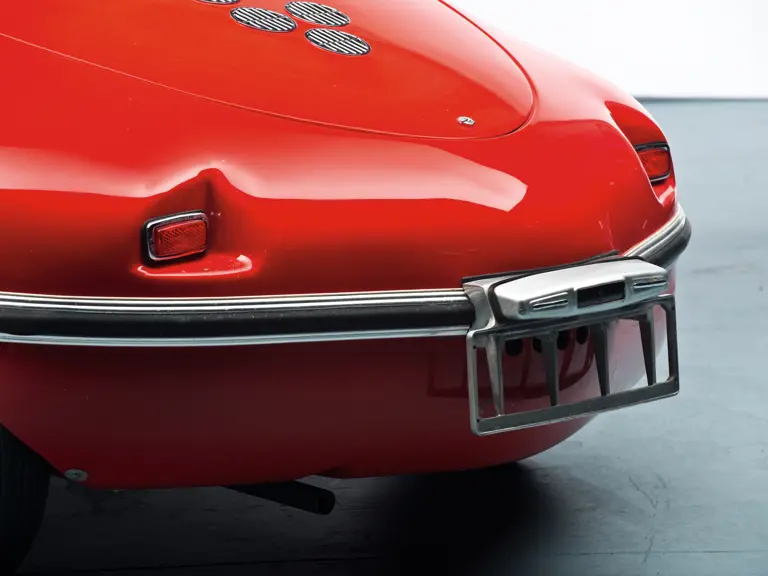
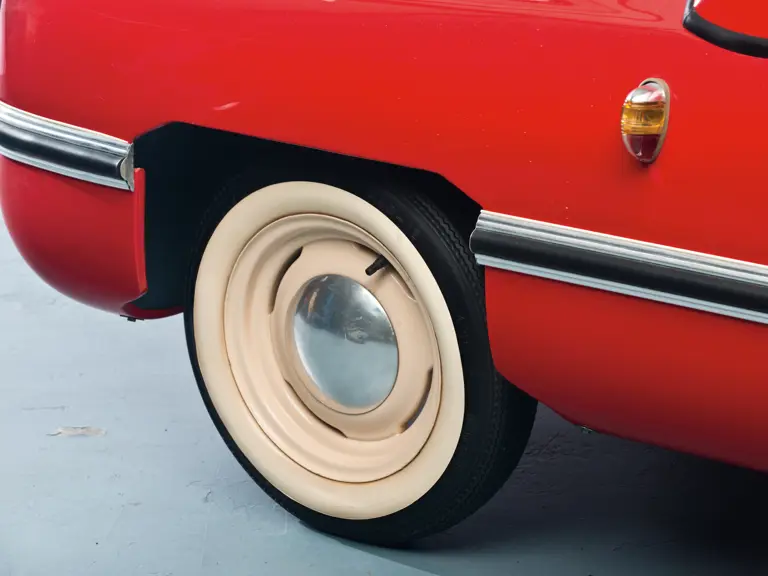
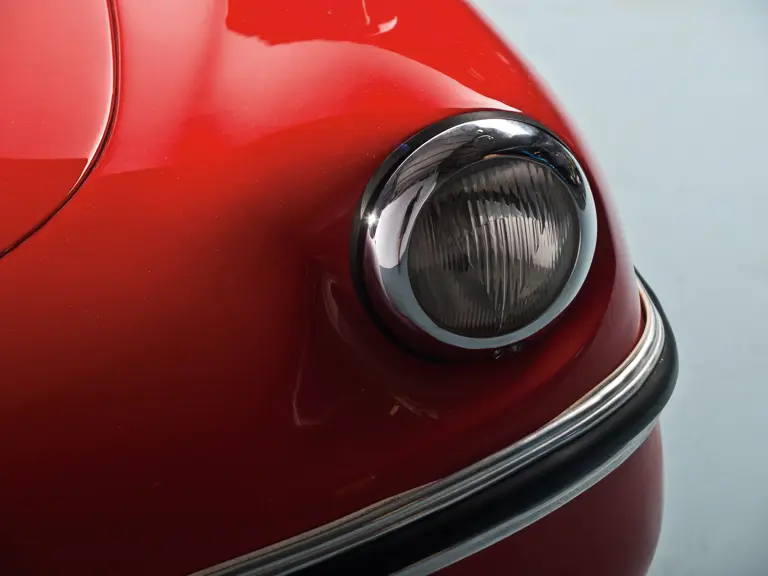
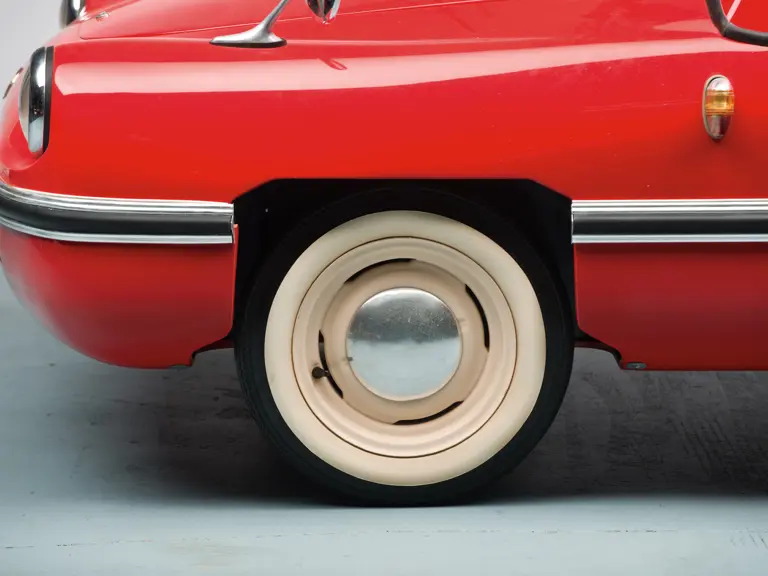
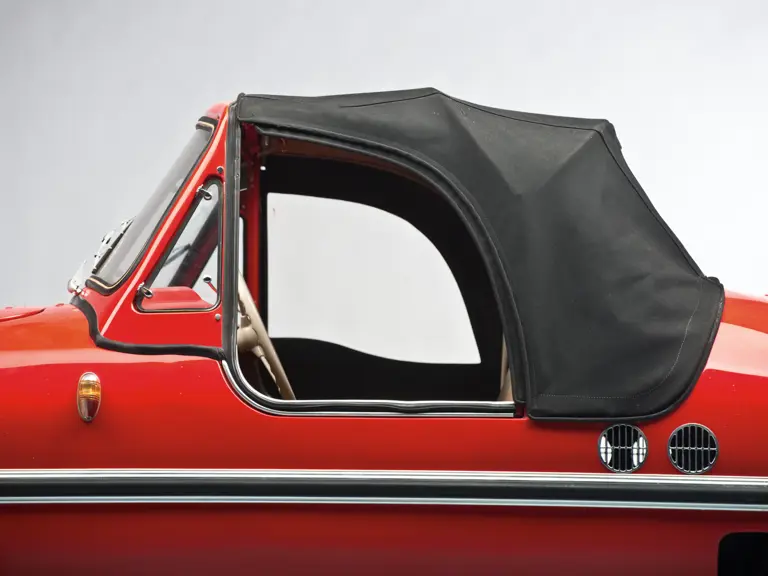
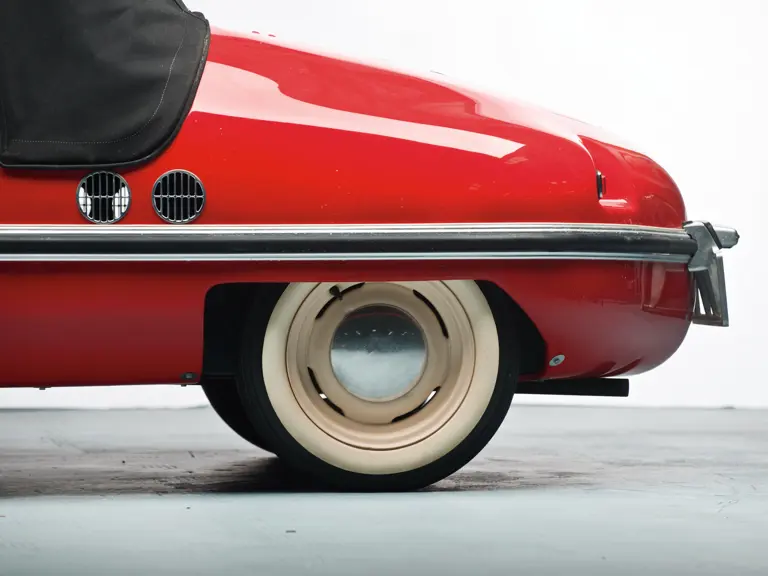
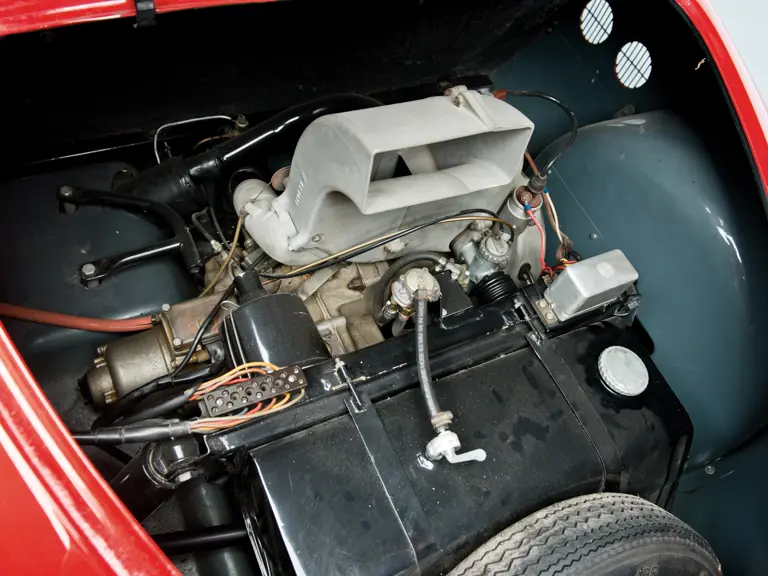
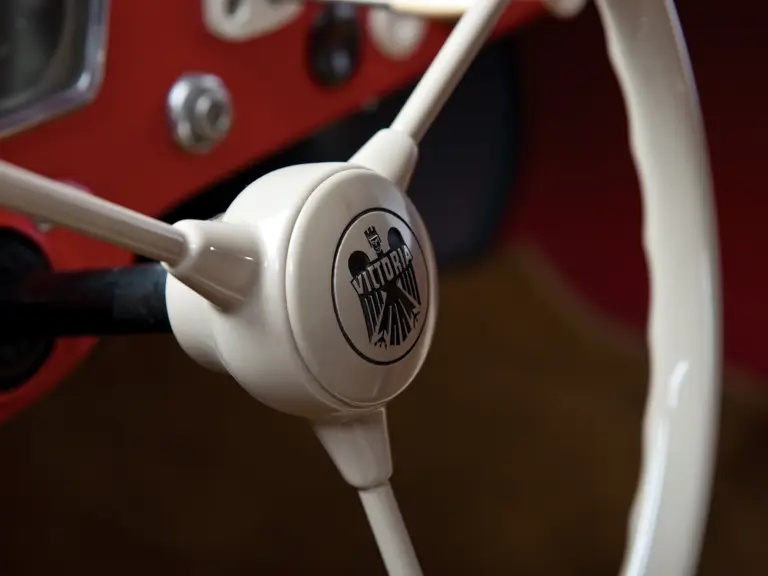
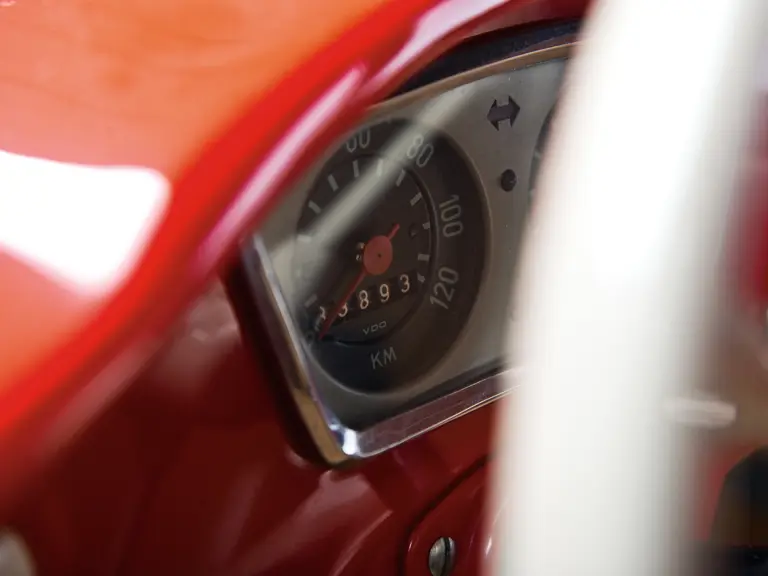
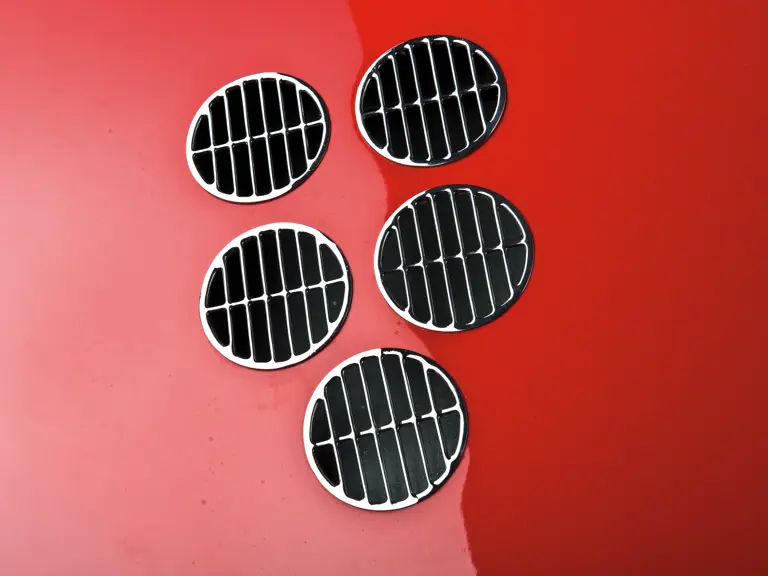
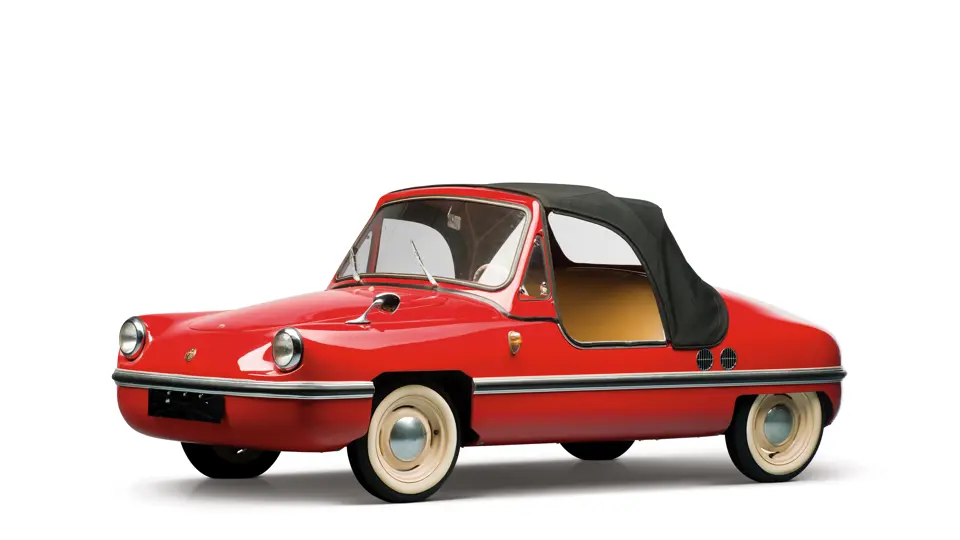
 | Madison, Georgia
| Madison, Georgia
